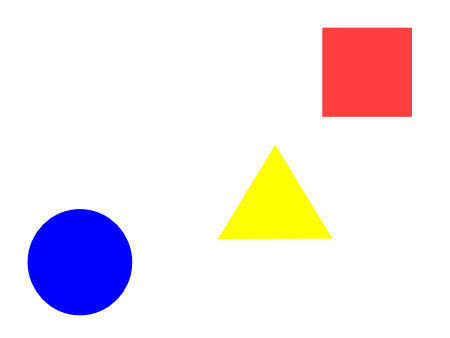na-ming ga-ming

This is not this
In their upcoming paper “The emergence of simple languages in an experimental coordination game”, Proceedings of the National Academy of Science, 2007 Reinhard Selten and Massimo Warglien describe an experiment in which the development of languages was evaluated via a bonus system within a game-like environment:
At the beginning of the game pairs of gamers were chosen randomly. On a screen each pair was confronted with a sequence of objects like triangles, squares and circles, which could differ by color and filling pattern. The task was to find names for the objects given a limited set of letters.
Then one person of a pair was chosen randomly to act as a “sender” for objects from the given repertoire of the sender – and if I understand correctly (I couldn’t find an online version of the article but just this report: Sprachevolution im Labor) – the sender had to send the object to his/her partner (the “receiver”) who had in the turn to repeat the name of the object. If both names – that of the sender and that of the receiver were identical the pair was awarded 10 Eurocents, which resulted in a cost of approx. 2-3 cents per letter for the lab. After one round the pair could chose new names in order to make the partner more sucessful. Altogether the pairs played 60 rounds. In between the rounds the players were confronted with new objects so that the question “How do I describe objects which didn’t exist before?” was getting important. As it turned out the most successful participants developped a kind of “compositional grammar”, i.e. they found “adjectives” to describe their objects, like “R” was for “round” und “S” for “square”; M for “red” and “Z” for “blue”. “RM” meant then “red circle”, “SM” was “red square”. For a small recurring sequence this may not always the most effective strategy but in the long run this strategy turned out to be the most successful since it made the naming of new objects easier, like if you have a collection of red circles and squares and add a blue one then it is immediately clear what ZS means. As it turned out participants who chose a compositional grammar earned on average 3 times more money than those without.